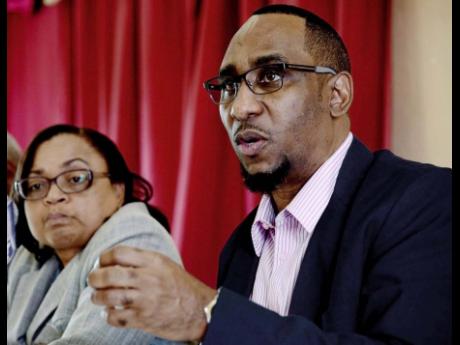Editorial | What’s the state of reform?
O’Neil Grant’s warning of the likelihood of workers at executive agencies jumping ship for jobs in central government requires a response from Nigel Clarke, including what that would mean for the public sector transformation project.
Should Mr Grant’s expectation materialise, it would, on the face of it, seem a good thing – an opportunity for Dr Clarke, finance and the public service minister, to accelerate what has been a slow attrition of ‘quangos’ (quasi autonomous non-governmental organisations) and other public bodies. However, it is not clear what, in very specific terms, Dr Clarke’s current strategic goals for remaining public bodies are or what his timelines are for reaching them. So a voluntary abandonment of quasi autonomous government departments or statutory agencies may not be as welcomed by the minister as we might expect.
Like many Westminster-style democracies with permanent civil services, Jamaica has long used semi-independent statutory companies and agencies to circumvent the perceived inertia of the public bureaucracy to deliver more quickly on policy goals.
And by operating similar to private-sector firms and paying their workers more than regular civil servants, it was also expected that these institutions would not only be more efficient, but operate with greater accountability.
Indeed, quangos grew rapidly in the 1970s and enjoyed another spurt in the 1990s.
BROUGHT COMPLAINTS
But in some cases, their mushrooming brought complaints of overlapping with existing, or other quangos, or central government agencies, as well as accusations that some facilitated cronyism and corruption. Since the late 1990s, successive ministers, including Dr Clarke, have initiated public-sector transformation/rationalisation projects, with mandates to whittle down the number of these bodies. Some have been divested.
“Let us be honest with ourselves,” Clarke quipped in 2018. “The sheer number of 190 (public bodies) compromises the ability for effective parliamentary oversight, reflection and review that are required for good governance.”
Arguing that the time and resources expended on some of these bodies could be better used elsewhere, the minister drew the example of Singapore, whose economy was “20 times that of Jamaica” but with only 64 public bodies – less than half of Jamaica’s.
In his Budget presentation this March, Dr Clarke, though not speaking specifically of the outcomes of the rationalisation project, indicated that there were now 140 public bodies, including executive agencies.
That suggests that over the past five years, at least 50, or 26 per cent, of the quangos identified by Dr Clarke in 2018 have been shuttered, mothballed, divested, or subsumed into other agencies. Most of that would have happened very quietly although some of the agencies existed largely on paper.
However, several critical executive agencies, such as Tax Administration Jamaica, the Jamaica Customs Agency, the Passport, Immigration and Citizenship Authority, still exist and would be among those to have fallen under the scrutiny of Mr Grant, who has just stepped down, after a dozen years, as president of the Jamaica Civil Service Association (JSCA). He led the JCSA’s element of negotiations with the Government over the reclassification of all public-sector jobs, which led to significant salary hikes, especially for people at the top.
RECLASSIFICATION TALKS
In his Budget remarks, Dr Clarke said that reclassification talks were completed with 80 per cent of the quangos and public bodies. He, however, did not disclose the level of those settlements or how they compared with what was received by other public sector employees. Mr Grant, though, suggested that they lag behind central government employees.
“In a lot of instances, central administration has gone ahead of the executive agencies, and the workers at the executive agencies are now saying they are looking to go back to central administration because there is no benefit that they can see to being in an executive agency,” he told this newspaper.
If this is indeed true, unease in quangos would possibly be exacerbated by public disaffection with pay hikes, in some instances by over 200 per cent, to Cabinet ministers and members of parliament.
The job reclassification and the salary adjustments – before it became mired in controversy over the perception that Dr Clarke railroaded some groups into settlements and now over ministerial pay – was in part to ensure that the public sector could attract and keep good talent. That was supposed to help in the development of an efficient and entrepreneurial public bureaucracy, which this newspaper supports.
Against that backdrop, and Dr Clarke’s observation of Singapore’s relatively few public bodies, it would not be unreasonable to assume that the minister’s vision extends to having some functions that are now the purview of quangos reabsorbed into the civil service.
In that context, it is timely for Dr Clarke to offer an update on his plans, the current status of the transformation project, the state of pay negotiations with outstanding quangos – and how he proposes to proceed.

